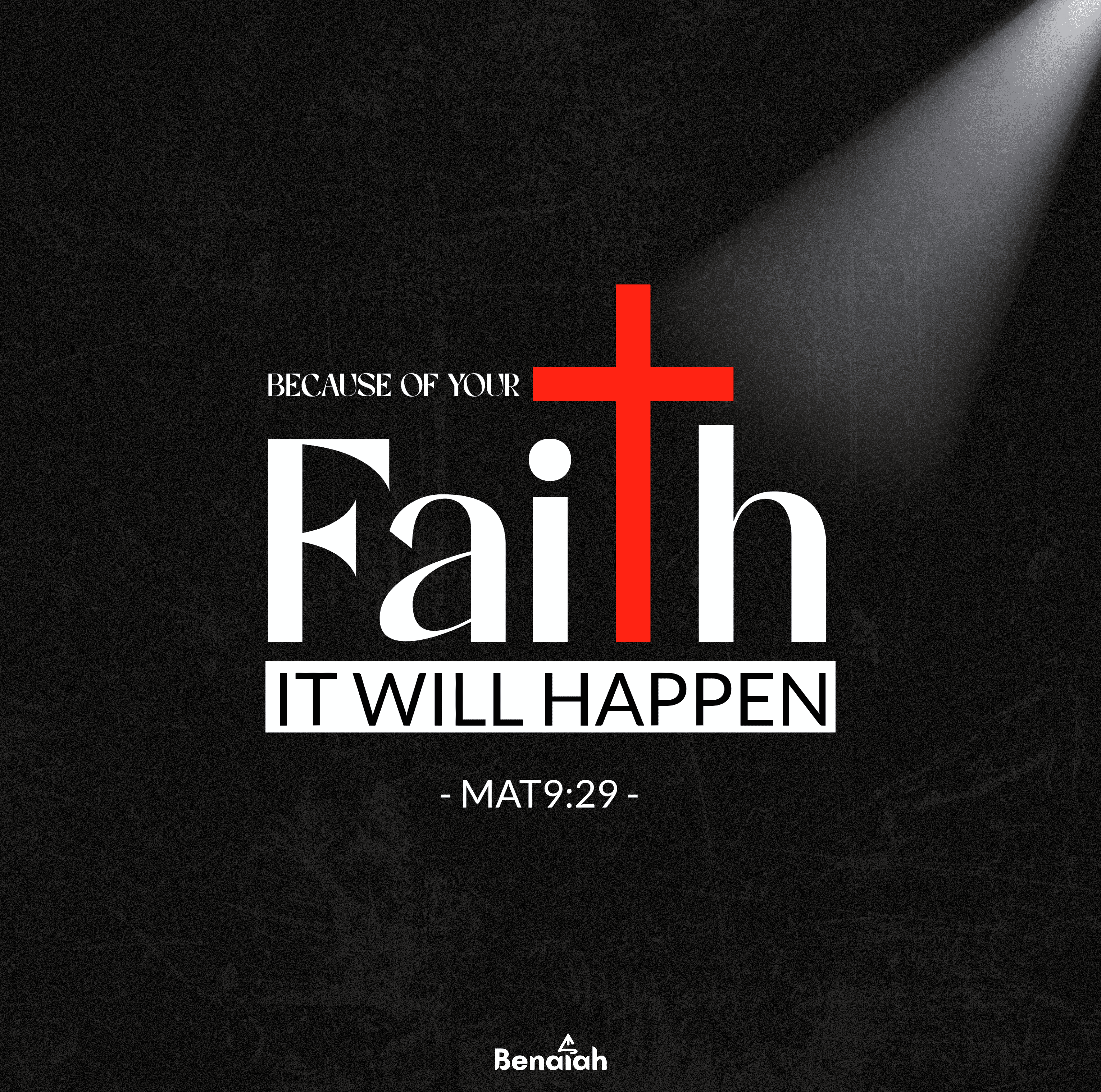.DR7OotV0.png)
When I study the Bible, what amazes me every time is the intentionality of everything, only hidden in the ground of deliberate studying. The words turning into sentences, from their construction and how the punctuation is placed to the order of words put together, always have more meaning as we stay with them a little bit longer. This is so true for 1st Corinthians 13, where Paul talks about love in a language that only makes sense to those who have tasted the love of Christ. Love keeps no record of wrongs? Love doesn’t envy? Seriously, it is a very hard truth that gives me a hiccup. And then in verse 13, he mentions the three important spiritual elements that will pass the bounds of time in a very orderly way.
“And now abide faith, hope, love, these three; but the greatest of these is love.”
1 Corinthians 13:13 NKJV
Let’s talk about faith for now.
I don’t think it is by accident that Paul put faith first. None is more important than the other, but as is true for this text, faith always comes first in our spiritual journey. When talking about faith, who else is a better example than Abraham, our very first father of faith, right? When God called Abraham into the unknown land, what started the relationship with the LORD was Abraham’s faith to leave who he was behind to pursue who God said he would be. Saying yes to that very first call into the unknown is very hard but a prerequisite to a relationship with God.
When talking about faith, trust also arises, so let’s see the difference between trust and faith, which seem very identical but are not necessarily the same thing. Let’s go to the story in Mark 4, where Jesus said to His disciples to go to the other side, to understand it with an example. As they were going by boat, He went on to have a little nap after a long day of teaching, loving, healing, hugging, and feeding people.
Then a furious squall came upon the boat, and the waves broke into it. With their experience as fishermen facing furious waters before, the disciples tried to save their lives until they couldn’t and woke up Jesus with shocked, terrified looks and wet hair sticking to their faces. “DO YOU NOT CARE IF WE DROWN?”—sounds like us after refusing to surrender and, after a long period of trying to calm the waves of life, ending up worn out. Anyway, Jesus got up, calmed the storm and waves, and said to them, “Why are you so afraid? Do you still have no faith?” Notice how He didn’t ask why they still had no trust but faith, for trust is faith in action. Their lack of faith was displayed as terror and worry in the face of a drowning squall.
In Genesis 22, after having Isaac, Abraham went to Moriah to sacrifice his only son—the promised son—just because God said so. Getting up early in the morning and raising the knife required trust built on a faith developed over time. When Abraham was 99, God appeared to him and introduced Himself as God Almighty (El Shaddai). He proved it by giving Abraham a son at 100 years of age. From a body as good as dead came a healthy young boy. He is indeed El Shaddai, the One with whom everything is possible.
Abraham continued trusting God, even though the circumstances didn’t seem to work in his favor, because Abraham knew that with God, everything is possible. The writer of Hebrews tells us where Abraham’s faith stood regarding the fulfillment of the promise in Hebrews 11:19: ‘Accounting that God was able to raise him up, even from the dead….’ There he is, Abraham, relying on the character of the Provider rather than the provision for the fulfillment of the promise. Abraham’s trust grew from the roots of the faith he had in God. Faith is the root from which trust grows. Trust is an act of obedience when things don’t seem to lead to our desired destination, because we have faith in the One who has ordered the steps. Faith is something we have, and trust is something we do.
Sometimes I find myself in situations where I want to trust people, but I don’t. I am very willing and act on the trust, although my heart keeps rejecting the process. How is it possible for someone to want to trust so badly and almost halfway into trusting, yet still feel that everything is wrong? I wonder. Later I understood that there is a lack of faith deep within, regarding whether they are worthy of my trust. We trust only when we have a belief that assures us we won’t get hurt. It is always when trust precedes faith that confusion arises. We have already covered that trust grows from a root of faith.
And it works the same in our relationship with God, I think. We can’t trust God overnight being free from the concern of ending up hurt deep down. We can’t trust Him if we don’t have faith in Him to always have our best interests at heart. Early in my Christian life, I had a problem.I brought my trust issues with people into my new relationship with God and thought God would be displeased if I didn’t trust Him 100% fast. I didn’t have a well-established understanding of who God is to base my faith on, that triggers the trust issues, but I knew I had to trust Him, and I wasn’t. But the truth is, faith takes time. Faith requires encounters and learning to reflect on our experiences through the lens of God’s goodness. It took time, and God was patient throughout the process. As I began growing my faith by spending time in the Word to learn more about Him, trust caught up, and it became easier and more natural.
One of the main themes of our Christian life is walking in faith. The Bible reminds us of this in various places, such as 2 Corinthians 5:7: “For we walk by faith, not by sight,” and Proverbs 3:5: “Trust in the Lord with all your heart, and lean not on your own understanding.” As human beings, we are limited in discerning good from bad if the discerning Spirit of the Lord is not guiding us.
A good example of this is Abraham’s nephew Lot choosing a place for his herds when he had to separate from Abraham. Abraham let Lot choose any place, promising to go the other way. “And Lot lifted up his eyes and saw that the Jordan Valley was well-watered everywhere, like the garden of the Lord, like the land of Egypt, in the direction of Zoar. (This was before the Lord destroyed Sodom and Gomorrah.)” (Genesis 13:10). Lot was a person who walked by sight, leaned on his own understanding, and ended up seeing Sodom and Gomorrah as the garden of the Lord.
Similarly, if we do not trust the Lord enough to walk by faith, we may see a place that God despises as the garden of the Lord, mistake lawlessness for freedom, or confuse pride with confidence. Faith is a way of life, and God invites us through His word to grow our faith in Him and walk in faith.
There is a famous quote about coffee that I like: ‘Life happens, coffee helps.’ However, when life happens, it is not coffee that actually helps. I mean, I believe in the power of coffee—I really do. But when life happens, the Bible says it is faith that truly helps.
When someone is in a traditional war, they always take a shield to protect themselves from enemy attacks. In Ephesians 6:16, Paul writes a similar concept for our life during spiritual battles: ’.. above all, taking the shield of faith with which you will be able to quench all the fiery darts of the wicked one.’ When we have no shield of faith, everything that is thrown at us will get us, get in us, and destroy us.
As we grow up, one thing we all learn is that everything is temporary. But who God is, His Word, and His promises are eternal. Wisdom is clinging to the only One who doesn’t change with time. If we have a faith, based on a solid biblical understanding of who God is, we are in the best place, safely shielded.
2. Rabbi Jason Sobel: Trust is Faith in Action | Praise on TBN

